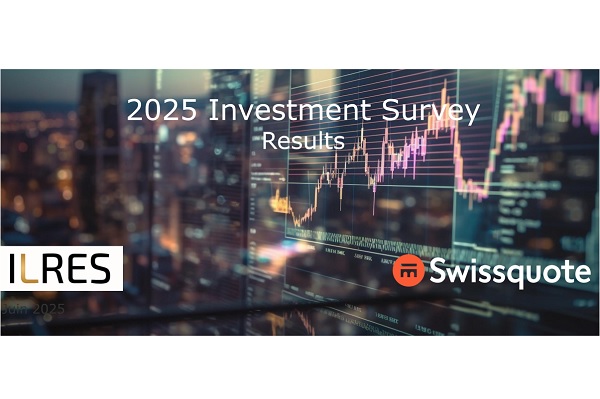
On Thursday 19 June 2025, Swissquote Bank Europe published the results of a new study on Luxembourg investment, conducted in partnership with ILRES.
The study revealed mounting concerns among Luxembourg investors over the global repercussions of current US economic policy. The findings suggested that trade policies implemented during President Donald Trump’s second term are widely viewed as potential threats to global market stability.
More than half (55%) of Luxembourg investors surveyed said these policies will contribute to rising prices and increased global market disruption in the near term. Only 4% of respondents expected the US agenda to boost economic growth and support markets. Meanwhile, 20% of investors took a more nuanced view, acknowledging that while some sectors and regions may benefit, others will likely face significant challenges. Another 16% said they were unsure what long-term impact US policy would have on global markets.
Swissquote noted that concerns have intensified in the wake of the White House’s April 2025 announcement of wide-ranging tariffs and the subsequent threat of reciprocal tariffs, which triggered a sharp sell-off across global markets. Although some markets have since rebounded amid softened measures and legal challenges, investor sentiment in Luxembourg remains fragile.
According to the survey, one in three Luxembourg investors now holds a negative outlook for global markets in 2025 – a 15-point increase from last year, when just 18% expressed similar pessimism. Only a quarter of investors expressed confidence in markets this year, while 42% adopted a neutral stance. Younger investors appeared more optimistic: 33% of “Gen Z” investors (aged 28 years and under) expressed confidence in global markets. In contrast, just 23% of “baby boomers” (aged 61 and above) held a positive outlook.
These findings are drawn from the 2025 Investment Survey conducted by Swissquote Bank Europe in partnership with Luxembourg-based market research firm ILRES. The survey reflects the responses of 1,204 Luxembourg residents interviewed between 20 April and 2 May 2025, including ILRES panels and Swissquote Bank Europe clients.
“The survey results reflect growing investor sensitivity to the global ripple effects of US economic decisions,” said Jeremy Lauret, Chief Commercial Officer at Swissquote Bank Europe. “Investors in Luxembourg are clearly concerned about the potential for inflation, trade disruptions and broader market instability. These findings highlight the value of a well-diversified portfolio that is exposed to different asset classes, regions and currencies during times of uncertainty.”
Despite concerns over Trump’s trade policy, Luxembourg investors appear to be staying the course when it comes to their investment choices. Over half of respondents surveyed said they did not plan to change how much they invest this year. Although fewer investors are adding new money compared to last year (down 8 percentage points), the number of investors withdrawing funds is marginal (down 2 points), suggesting many are choosing to wait and see how markets adapt to the new economic environment.
Other key findings from the survey include equities and precious metals being seen as safe bets. The shift in market sentiment has not dampened appetite for riskier assets, with 47% of investors saying they expect equities to perform best over the next two years. However, most investors predict Asian and European markets will outperform the US. Even with interest rates expected to fall, only 15% of investors have a positive view of bonds. Meanwhile, nearly half (47%) are bullish about precious metals like gold, likely as a way to protect against market uncertainty. Cryptocurrencies continue to garner interest - 23% of investors believe digital assets will outperform traditional assets this year.
The survey also revealed that AI adoption remains limited and unequal. Artificial intelligence (AI) is increasingly being integrated into the investment process, but how, exactly, are investors applying the technology? According to the survey, 19% of respondents said they use AI tools for company analysis and research, while 17% rely on it to summarise financial news. Another 12% use AI to analyse their portfolio and manage risk through diversification. Only 3% currently automate trades using AI technologies. Despite growing interest, the majority of investors remain cautious: two-thirds said they do not use AI in their investment decision-making. High earners – those with a gross annual household income of €365,000 - are twice more likely than the average investor to use AI to support their investment strategies.
In terms of Luxembourg’s property market, 44% of Luxembourg residents surveyed said they invest in property. According to the survey, 24% of residents believe it is a good time to enter the property market. In contrast, 19% advised waiting until next year to reassess housing conditions. 37% believed Luxembourg property is generally overvalued and suggested buying only if prices drop. The findings showed that while homeownership remains a major focus for many in Luxembourg, uncertainty over market valuations continue to shape sentiment toward new investment.








